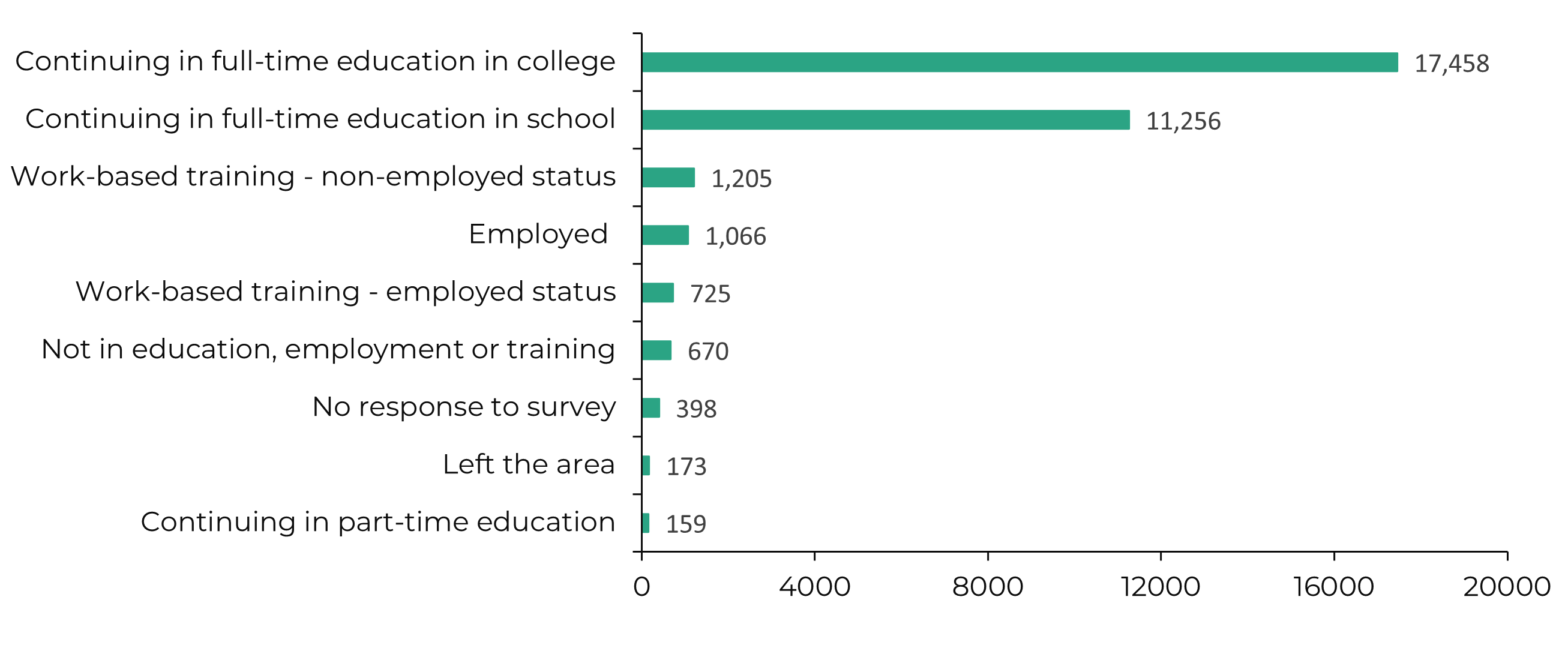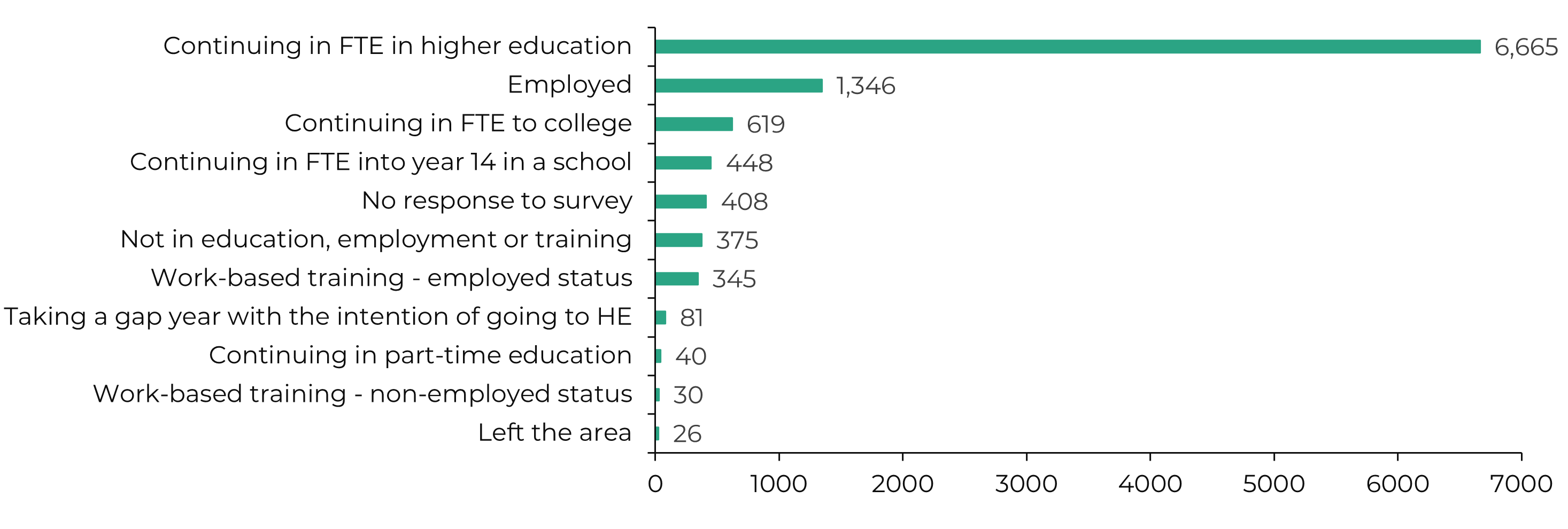Finishing school or college can be an exciting yet daunting time in a young person’s life. While there are many options available to them, it can be complicated to navigate. This article sets out some of the options available to young people when leaving school or college, looks at what young people are choosing to do, and signposts to further advice.
Young Person’s Guarantee
The Young Person’s Guarantee (YPG) is one of the Welsh Government’s key commitments to provide everyone aged 16 to 24, living in Wales, with support to gain a place in education or training, or help to get into work or self-employment. The YPG is an umbrella structure and includes a number of options, including:
- Apprenticeships through the apprenticeship programme. The training costs of which are covered by the Welsh Government, while the wages for the apprentices are provided by the employer;
- Big Ideas Wales helps people under the age of 25 to start their own business;
- Communities for Work+ provides specialist employment advice for people over the age of 20 who are not in education, employment or training (NEET) and have a complex barrier to employment;
- Further education in either a sixth form or college;
- Higher education in a university;
- Jobs Growth Wales+ provides those between 16-19 with skills, qualifications and experience to get a job or further training. As part of the programme young people are able to receive a training allowance depending on the hours of training they do and the strand they are on; and
- ReAct+ offers tailored support for people over the age of 20 who have recently been made redundant, or are an ex-offender or an offender serving a community sentence.
What do young people choose to do?
Each year Careers Wales compiles a survey of school leavers and publishes pupils' destinations. A pupil’s destination is their known activity in the October after leaving that school year. The data collected only includes pupils leaving year 11 and pupils leaving years 12 and 13 in school sixth forms, therefore it does not include those who attend further education colleges.
Graph 1 below shows the overall figures for the 2022-23 year 11 cohort in response to the survey.

Source: Careers Wales, Year 11 Pupil Destinations from Schools in Wales 2023
There were 33,110 pupils in the year 11 cohort in 2022-23. 93% of the cohort went into either full- or part-time education or work-based training. 28,714 pupils (86.7%) continued with full-time education, of which 11,256 (39.2%) continued education in their school sixth form and 17,458 (60.8%) entered a further education college. In total 1,930 pupils went into work-based training and 1,066 pupils entered employment.
Graph 2 below shows the overall figures for the 2022-23 year 13 cohort in response to the survey.

Source: Careers Wales, Year 13 Pupil Destinations from Schools in Wales 2023
There were 10,383 pupils in the second year of a school sixth form who completed year 13 in 2022-23. 79.2% of the cohort continued learning in education or entered work-based training. 7,813 continued with full-time education (FTE), of which 6,665 (85.3%) went into higher education, 619 (7.9%) went into further education colleges, 448 (5.7%) went into year 14 in a school setting, and 81 (1%) were taking a gap year with the intention of going to higher education (HE). In total 375 pupils went into work-based training and 1,346 entered employment.
Getting advice
The Careers Wales website has a lot of information for young people, parents or carers, teachers and employers. There are a number of ways to get in touch with them to discuss options upon leaving school or college including face-to-face appointments or online chats.
Student Finance Wales’s website provides information on what financial support may be available to young people continuing in further and higher education. This includes the Education Maintenance Allowance (EMA) for 16-18 years and student loans for studying at university.
A parent or carer receiving Child Benefit can continue to receive it after their child’s 16th birthday if they continue in education and training. They must tell HMRC though or the benefit will stop. More information is available on the UK Government’s website.
We’ve published guides on what student funding support is available for further education, and higher education at both undergraduate and postgraduate level.
Article by Lucy Morgan, Senedd Research, Welsh Parliament






